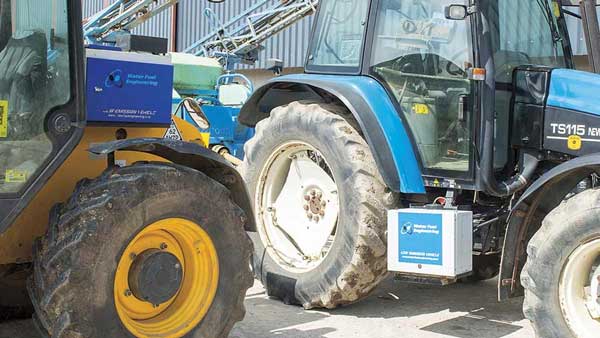When biochar (BC) ages in soil, its properties change substantially: cation exchange capacity (CEC), surface area and porosity increase and water repellency decreases, consequently affecting the interactions with soil microorganisms. Activation of BC by organic acids may be regarded as artificial aging. Here, we study the effect of acid-activated BCs on soil microbial enzyme activities (EA) in comparison to several different control treatments without activated BC. A greenhouse pot experiment was conducted using a vineyard soil treated with multiple soil additives (four replications).
This study assessed the carbon (C) budget and the C stocks in major compartments of the soil food web (bacteria, fungi, protists, nematodes, meso- and macrofauna) in an arable field with/without litter addition. The C stocks in the food web were more than three times higher in topsoil (0–10 cm) compared to subsoil (>40 cm). Microorganisms contained over 95% of food web C, with similar contributions of bacteria and fungi in topsoil. Litter addition did not alter C pools of soil biota after one growing season, except for the increase of fungi and fungal feeding nematodes in the topsoil.
Background: In Germany, currently two out of three medical students are female. Several studies corroborate that medical students show a significantly higher prevalence of stress-related mental disorders than the population in general. Aims: We aimed to evaluate, if gender has an influence on the distribution of mental stress parameters and learning style among male and female medical students.
Evaluations of food, energy and water (FEW) linkages are rapidly emerging in contemporary nexus studies. This paper demonstrates, from a food consumption perspective, the potential of life cycle thinking in understanding the complex and often “hidden” linkages between FEW systems. Our study evaluates the upstream virtual water and embodied energy in food consumption in the Tamar catchment, South West England, distinguishing between domestic production and imports origin.
The paper makes use of an un-orthodox Lefebvrian formulation of the ‘right to the city’ as it adds the gender dimension which was absent from Lefebvre's work. The lens of ‘gendered right to the city’ (Doderer, 2003; Fenster, 2005; Vacchelli, 2014) is used in order to understand the experiences of volunteers working in the women's community and voluntary sector in London.
Scottish farmers have been using clean energy technology normally used by buses and bin lorries to power their farm machines, helping to reduce emissions and make efficiencies. This helps to advance both goal 7 and goal 12.
Infosecurity Europe is Europe’s number one information security conference and exhibition. Featuring Europe’s largest, highly regarded and respected FREE to attend education programme in the industry. Over 315 exhibitors showcase the most diverse range of products and services to 15,500 information security professionals. This makes Infosecurity Europe the MUST-ATTEND event of the year.
In support of goal 5, XpertHR have recorded a webinar that discusses the main findings of the UK Gender Pay Gap Reports, which companies with more than 250 employees 250 employees are expected to produce.
The #MeToo and #Time’sUp movements are bringing more focus to the issue of equal pay for women causing employers to take gender pay equity more seriously, with some reporting success. This Blog relates to Goal 5, discussing gender equality.
With increasing pressure on chemical solutions to pests and diseases from the public, and growing resistance from plants as well as the risk to bees and other beneficial insects, farmers urgently need viable alternatives. Farmers Weekly talked to a UK farmer who is relying on biological controls to keep his oilseed rape healthy and yields profitable. This helps support SDG 12 - responsible consumption and production.


